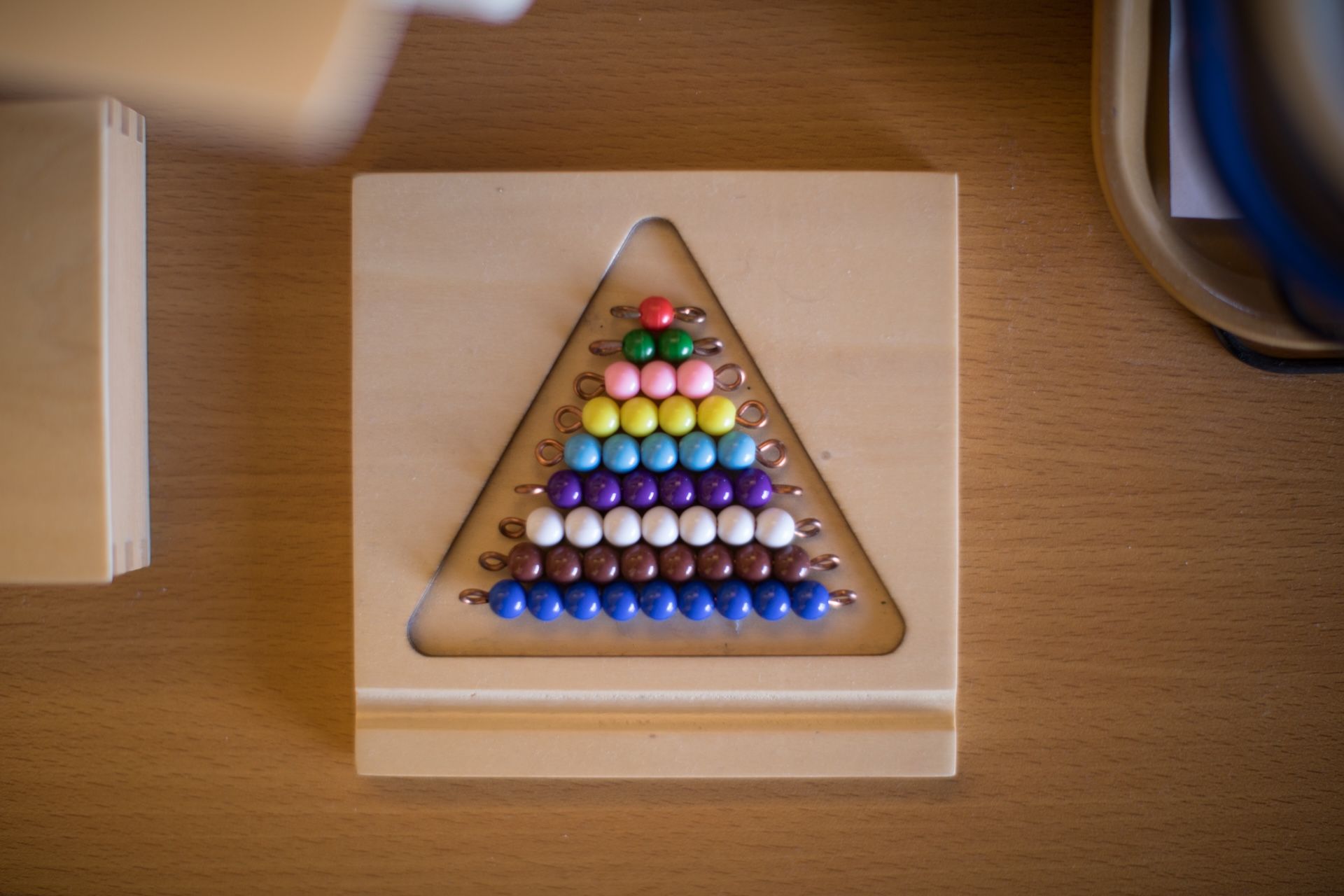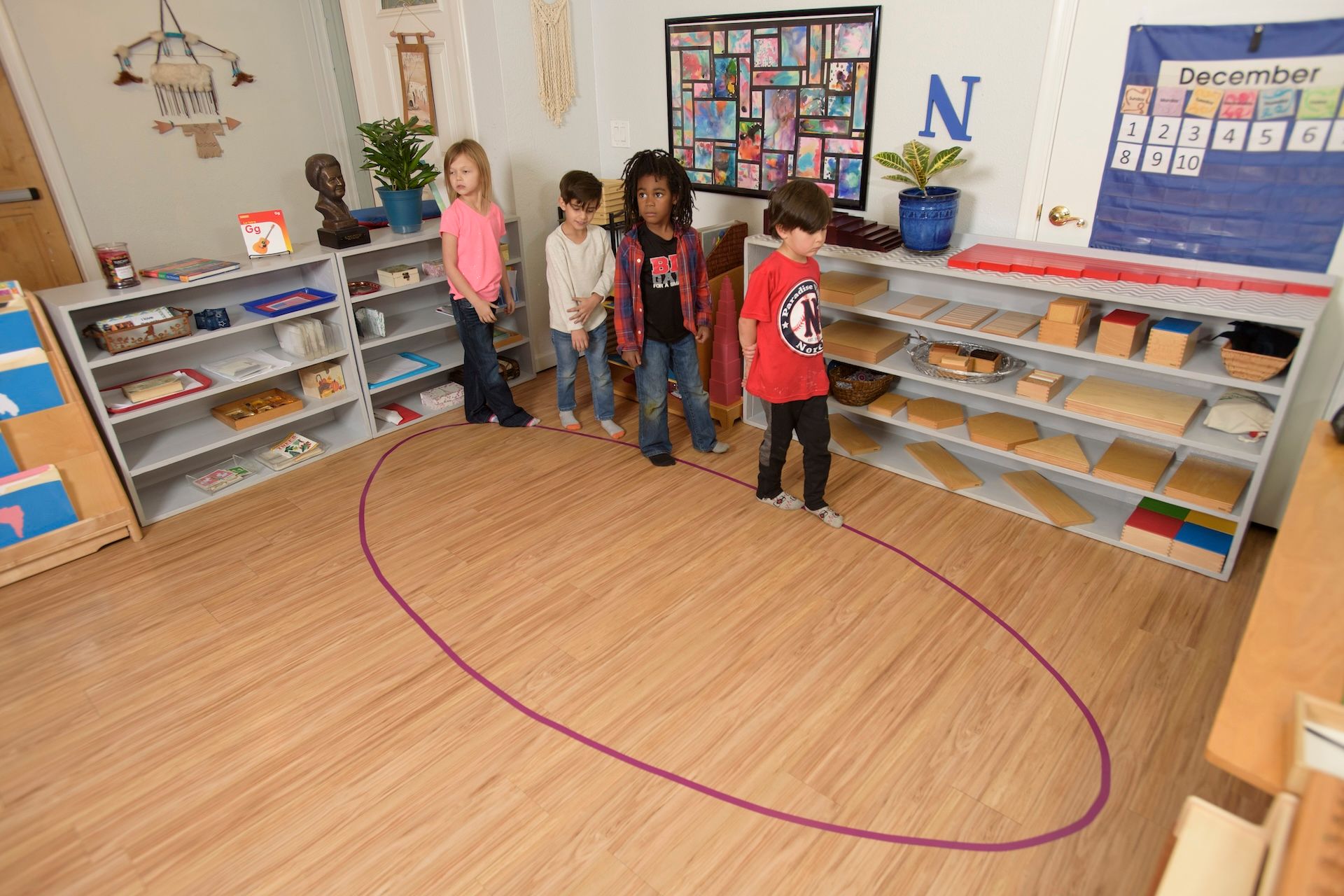
If you have your child enrolled in a Montessori school for their preschool years, you might be wondering whether or not to stay with Montessori for kindergarten. Before deciding whether or not to put your child in a different type of school, here are five points you might want to consider.
1) Three-Year Cycles Work
Montessori schools teach on a three-year cycle that groups children who are on the same “plane of development,” as Montessori put it. Our Toddler Program groups ages 18 months through 3 years together and the Primary Program groups children ages 3 through 6.
If you pull your child out of the program to start kindergarten at age 5 or 6, you’re interrupting them in the middle of the three-year teaching cycle. That means they’ll miss out on the part of the program where the things they’ve been learning for the past year or two starts to “click.”
2) An Opportunity To Lead
Centuries ago, the Roman philosopher Seneca wrote, “While we teach, we learn.” Montessori applies this ancient wisdom by giving the older children in a three-year cycle the opportunity to help younger children just starting the program.
Some traditional schools are starting to offer students teaching opportunities (such as high school students teaching computer science to middle schoolers). But it’s not all that common, especially for younger classes. Pulling a child out in the middle of the Montessori Primary Program deprives them of a chance to solidify their skills by progressing from classroom observer to leader.
3) Teachers Know Your Child
In a Montessori school, your child will usually keep the same teachers throughout their three-year cycle. The guides teaching your child at age 4 will still be teaching them at age 5 and age 6.
If your child moves to traditional kindergarten, however, they’ll be in a brand new environment with a brand new teacher. It will take the teacher a while to become familiar with your child’s skill level and personality. There’s no such lag-time in a Montessori environment.
4) Comfortable Environment for The Child
Young children are very resilient. They can handle quite a bit of change and bounce-back from big transitions. But just because they can handle it doesn’t mean drastic changes are a good thing for them.
Sticking with the Montessori program through kindergarten, and even beyond into the Elementary Program , gives your child a routine they can count on. When your child goes back to their Montessori school, they’re ready to pick up right where they left off instead of struggling to navigate a new school structure, get used to a new teacher, and meet an entirely new peer group.
5) Accelerated Learning
It’s often the case that children in a Montessori environment learn more skills more quickly than in a traditional school. Montessori students are exposed to an amazing amount of knowledge and often excel academically beyond what is usually expected of children their age.
And it’s not just about academic knowledge. Students in a Montessori school also learn how to manage their time, self-motivate, work hard, focus on their tasks, and help others.
We might be a bit biased, but we really think sticking with the Montessori system is best, especially during a child’s early years. Ultimately the decision is up to you, of course, and what’s best for your child will depend on a variety of factors. If you’d like, we’d be happy to talk with you about your different options and how they might affect your child.
The post Top 5 Reasons To Stay With Montessori When Transitioning From Preschool To Kindergarten appeared first on Pebblecreek Montessori.
Hours
MONDAY - FRIDAY
HALF DAY: 8:30a – 12 noon
ACADEMIC DAY: 8:30a – 3:30p
EARLY CARE: 7:00a – 8:30a
AFTER CARE: 3:30p – 6:00p
OFFICE: 8:00a - 4:00p
Programs
Connect
Pebblecreek Montessori




